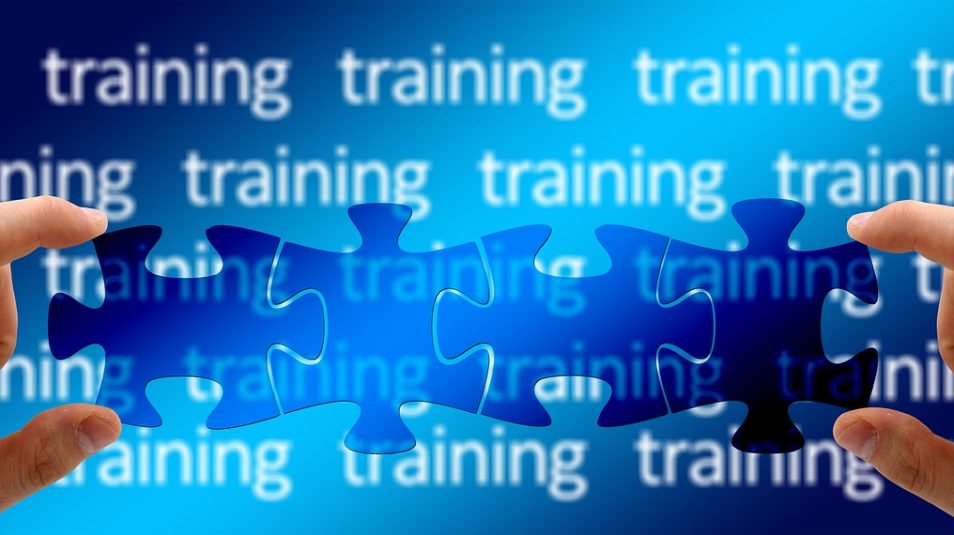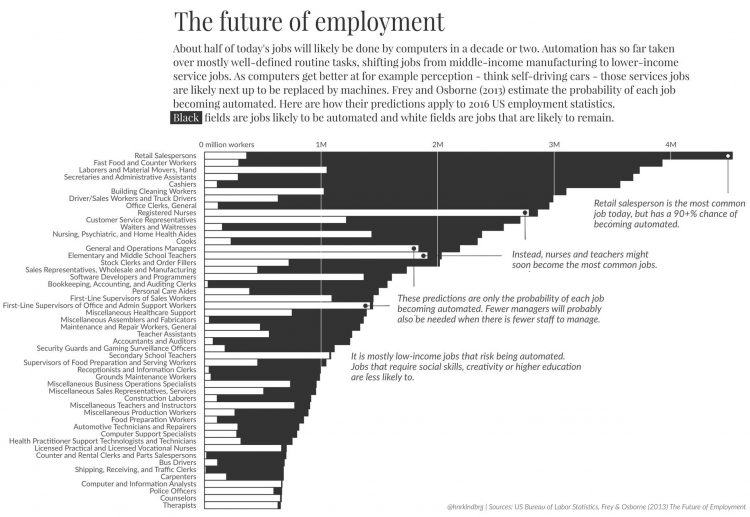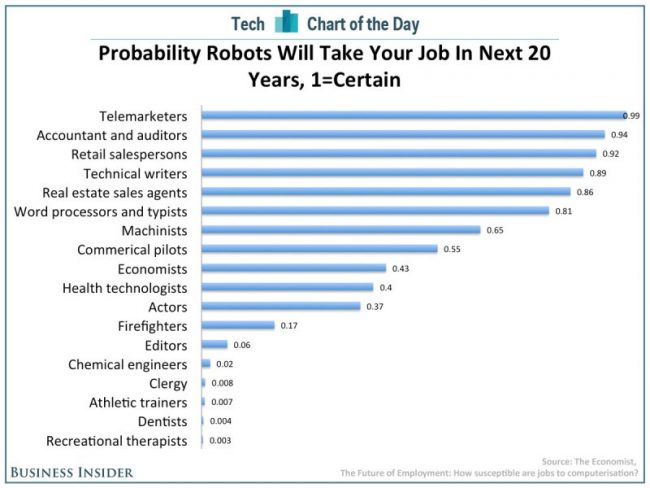Just Who Should Be Responsible for Job Retraining Anyway?

Team Dynamics
October 30, 2017
Hollis Thomases
Founder of ReinventionWorks
Topics
Communication, Leadership, TeamworkThese days there seems to be incessant discourse about job displacement and the many industries that will be affected by greater automation, artificial intelligence, machine learning, and robots, but no one is exactly sure what kinds of new jobs will be created.
Job loss has real economic and societal consequences, as we’re already seeing today. None of us can afford to look the other way, even if you have a job today. And yet, just who should be responsible for job retraining anyway?

Expectations for a Lifetime of Work
If we consider the initial preparation of the workforce, the onus these days seems to fall on the individual. According to a 2016 Pew Research Center survey, “72 percent of Americans say ‘a lot’ of responsibility falls on individuals to make sure that they have the right skills and education to be successful in today’s economy.” A mere 16 percent of survey respondents “think that a four-year degree prepares students very well for a well-paying job.” Ouch.
While 54 percent of the labor force say that it will be essential for them to get training and develop new skills throughout their work life to keep up with changes in the workplace, and 61 percent of those age 18 to 29 “see skills and training as essential.” Even older adults who work in “secure” fields like IT and healthcare express similar sentiments. Despite this, many employers have cut training programs, shifting the cost to their employees without necessarily paying them anymore for doing so.
Job Displacement Winners and Losers
In job displacement scenarios that lead to the need for retraining, there are clear winners, losers, and those caught in between.
The Worker – The worker losing his or her job is the one who will most directly feel the brunt of job displacement. The under-educated and highly educated are both at risk.

Dependents – When someone loses a job, family members feel the loss, too, and not just financially.
Employers – Employers can be winners or losers in their quest to grow through automation. Yes, they may be able to downsize their workforce and save money by so doing, but they may also struggle to find skilled workers.
The Innovators – While employers might innovate on their own, oftentimes they get outside help. They acquire software that automates processes, buy new automated machinery, and hire consultants to tell them what to do and how to do it. These third-party companies – The Innovators – stand to benefit the most.
Government – Federal, state, and municipal governments can be on either side of the win-loss equation. When people lose jobs, they’re eligible for unemployment compensation that government has to pay out, and for the duration of these people’s unemployment, the government cannot collect taxes. People who have no wages also do not go out and buy things, impacting the communities in which they live. Displaced workers look to their government to provide retraining programs…and blame the government when they can’t find new jobs. But governments that attract Innovators can ultimately foster new growth and prosperity for their region.
The Burden of Retraining
Given the data and the programs in place already, many of the stakeholders mentioned above already do play a role in job retraining, save one: The Innovators. Right now, those creating new job displacing technologies have zero skin in the game when it comes to the people – the workers -- they displace. And yet, they have the most to gain. What if there were a new equation for funding and delivering job retraining, one that required Workers, Employers, Government, and Innovators to do their fair share to help ensure an employable workforce for the future? This requirement shouldn’t be thought of as a burden but more of a shared “kitty,” one currently shouldered mostly by the government to the tune of at least $300 billion a year.
If the mission truly is to have an amply-employed society, shouldn’t those that are helping to create the displacement also bear some of the responsibility of people’s future? By no means am I opposed to innovation. I just think there should also be some built-in accountability for the human condition as well.






